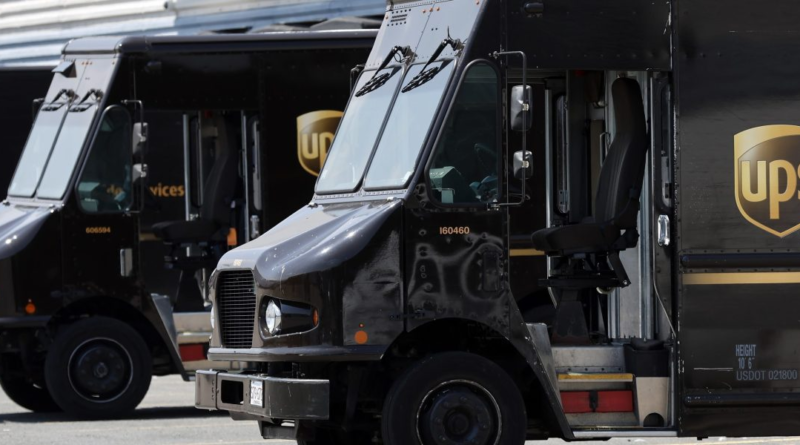UPS to begin training nonunion delivery workers as strike talks grind on with 25 million packages per day in the balance
A little more than a week after contract talks between UPS and the union representing 340,000 of its workers broke down, UPS said it will begin training nonunion employees in the U.S. to step in should there be a strike, which the union has vowed to do if no agreement is reached by the end of this month.
UPS said Friday that the training is a temporary plan that has no impact on current operations.
“While we have made great progress and are close to reaching an agreement, we have a responsibility as an essential service provider to take steps to help ensure we can deliver our customers’ packages if the Teamsters choose to strike,” UPS said.
Last week both sides blamed the other for walking away from talks, which now appear to be at a stalemate with a July 31 deadline approaching fast.
Teamster-represented UPS workers voted for a strike authorization last month and union chief Sean O’Brien previously said that a strike was imminent. On Friday, O’Brien joined union workers in a picketing dry-run in Brooklyn, New York.
“UPS is making clear it doesn’t view its workforce as a priority. Corporate executives are quick to brag about industry-leading service and even more quickly forget the Teamster members who perform that service,” the Teamsters said Friday. “UPS should stop wasting time and money on training strikebreakers and get back to the negotiating table with a real economic offer.”
The Teamsters represent more than half of the Atlanta company’s workforce in the largest private-sector contract in North America. If a strike does happen, it would be the first since a 15-day walkout by 185,000 workers crippled the company a quarter century ago.
UPS has grown vastly since then and become an even more integral piece of the U.S. economy, with consumers relying on swift delivery of most essential home items. Small businesses who rely on UPS could also be left looking for alternative shipping options if the company’s remaining workforce wasn’t able to meet demand during a strike.
Businesses have already begun to prepare for a strike, seeking alternate services for delivery, but the strike would likely lead to significant disruption given the scale at which UPS operates.
UPS delivers around 25 million packages a day, representing about a quarter of all U.S. parcel volume, according to the global shipping and logistics firm Pitney Bowes. That’s about 10 million parcels more than it delivered each day in the years leading up to the COVID-19 pandemic.




